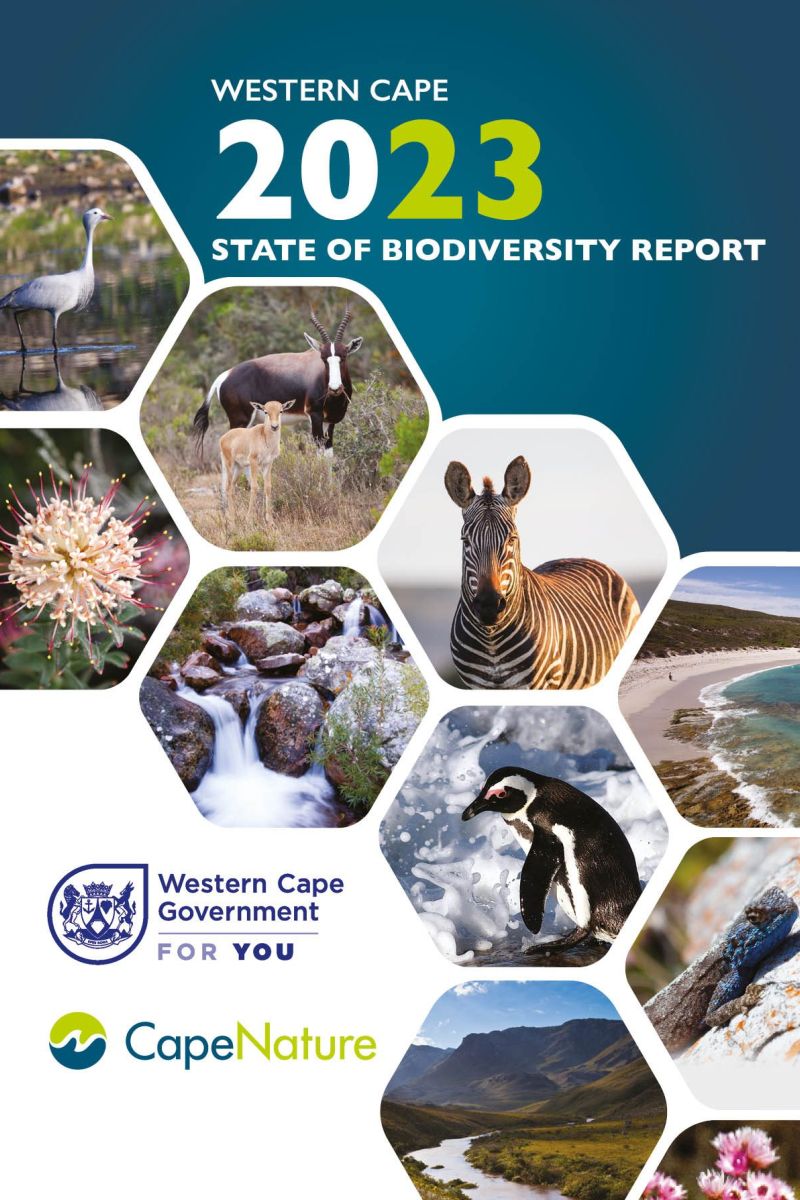2023 State of Biodiversity Report
CapeNature has compiled State of Biodiversity reports every five years since 2002, and this is the fifth report. Building on the 2017 CapeNature State of Biodiversity Report, the last report published in the series, the 2023 Western Cape State of Biodiversity Report (2023 WC SOBR) covers the period from April 2017 to March 2023.
Monitoring and reporting on the state of biodiversity is an essential guide for the sustainable management of the environment of the Western Cape. This is especially the case in the context of climate change, biodiversity loss (Secretariat of the CBD 2020), ecosystem and species restoration and sustainability (resilience and adaptation). Regular reporting is necessary to monitor the success of management interventions and to adapt to the factors that drive the status of biodiversity. Regularly gathering and analyses of state of biodiversity evidence is thus essential for Strategic Adaptive Management, enabling management authorities to respond to change and continuously improve management or maintain status quo.
At the basis of biodiversity conservation is knowledge and an understanding of what remains and what has been lost, what is at risk of being lost and what threats must be addressed to mitigate biodiversity loss. This report succinctly summarises information as relating the status of the terrestrial, freshwater, coastal ecosystems, and indigenous species in the Western Cape, highlights the status of primary threats to biodiversity (including habitat loss, biodiversity crime and invasive alien species), and reviews the effect of fire in protected areas as a key ecological driver of the Fynbos biome. Several key products that were produced over this five-year period of review have also been incorporated in this addition, including key findings of the 2018 National Biodiversity Assessment, land cover modification up to 2020, as well as the 2022 revised of the terrestrial IUCN Red Listed Ecosystem status list, providing the most up-to-date understanding of the State of Biodiversity in the Western Cape as at the end of March 2024.
